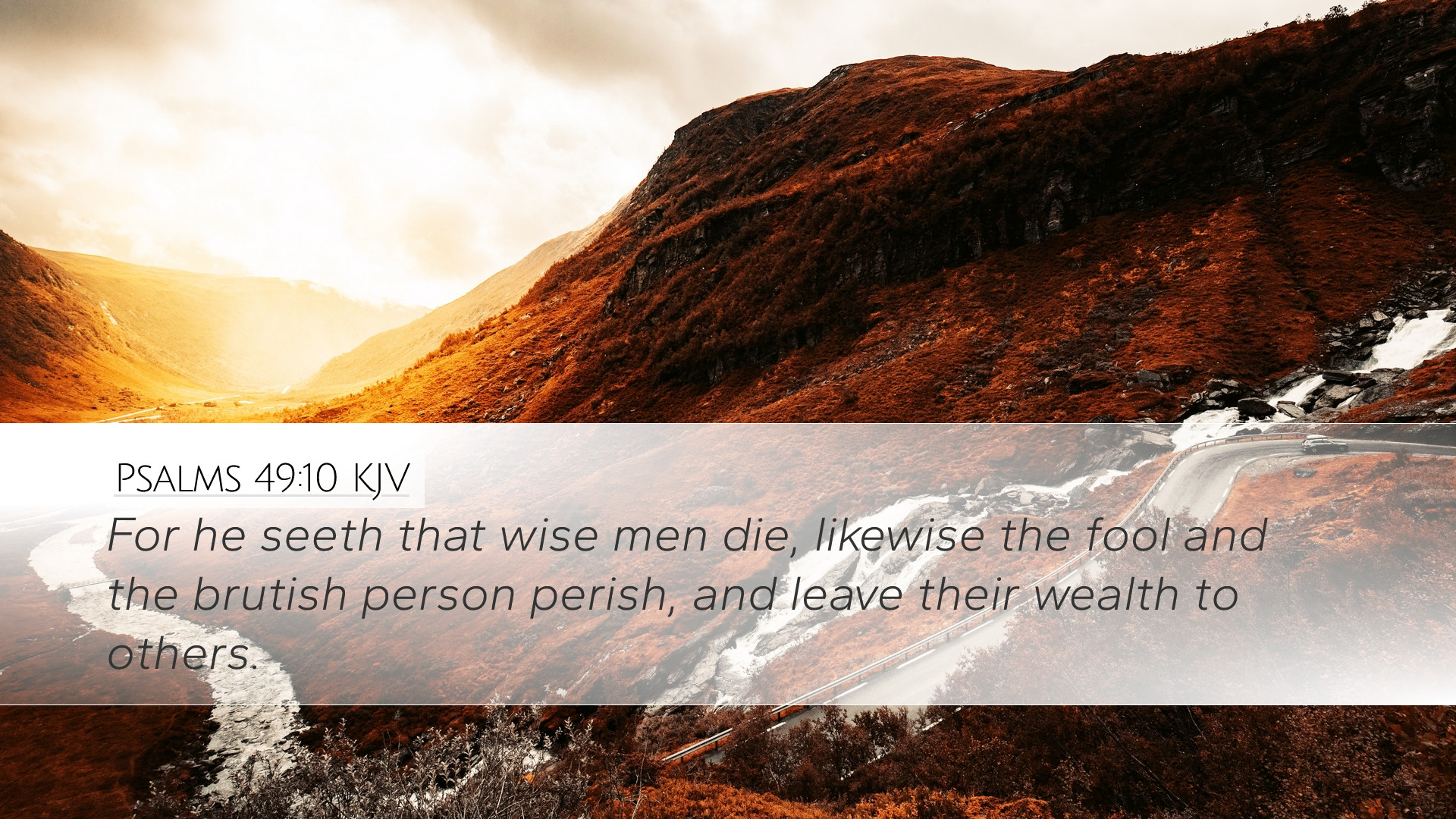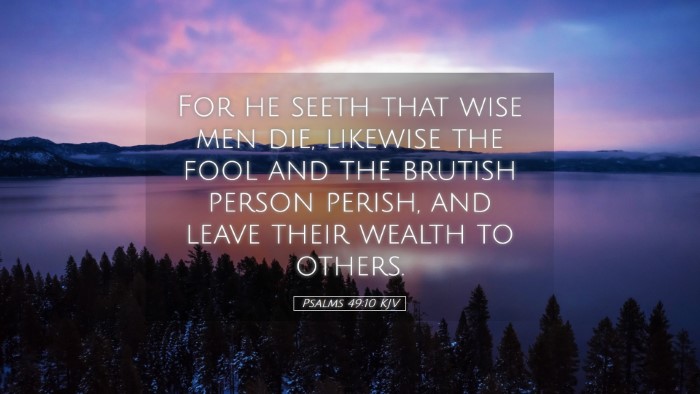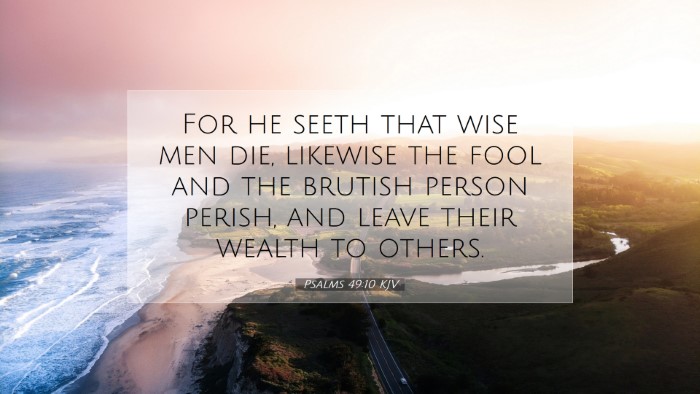Psalms 49:10 Commentary
"For he seeth that wise men die, likewise the fool and the brutish person perish, and leave their wealth to others."
Contextual Overview
The verse Psalms 49:10 addresses the vanity of trusting in wealth and the inevitability of death that spares no one, regardless of their wisdom or folly. This portion of the Psalm is attributed to the sons of Korah, conveying profound truths about human mortality and the futility of material possessions.
Insights from Matthew Henry
Matthew Henry emphasizes the equality of all men in death, noting that both the wise and the foolish face the same end. He argues that wisdom does not preserve one from mortality; rather, it highlights the transitory nature of earthly life and its fleeting pleasures. Henry points out that the great equalizer, death, renders all efforts to accumulate wealth futile, as no one can carry their riches beyond the grave. He encourages a focus on the eternal, stressing the importance of investing in spiritual rather than material wealth.
Insights from Albert Barnes
Albert Barnes elucidates the theological implications of this verse by reminding readers that the wise man dies as does the fool. He elaborates on the notion that life’s superficial distinctions based on intelligence or wealth are stripped away upon death. Barnes explains that the phrase “leave their wealth to others” serves as a stark reminder of the transient hold one has on material possessions. He urges believers to consider the futility of amassing wealth that cannot be retained in death, instead advocating for a life that produces eternal fruits that benefit both oneself and others.
Insights from Adam Clarke
Adam Clarke provides a comprehensive analysis that connects this verse to the broader themes found throughout the Psalms. He notes that the “wise” and the “foolish” represent all of humanity, underscoring the inevitability of death as a common fate. Clarke emphasizes that the “brutish” are those who live without reason and awareness and suggests that true wisdom lies in the acknowledgment of one’s mortality and the pursuit of wisdom that transcends earthly understanding. He also points to the emotional implications of leaving wealth to “others,” often indicating unwarranted heirs who may squander the resources that one labored to obtain.
Theological Reflection
This verse serves as a poignant reminder of the fleeting nature of human existence and wealth. The faithful reader is encouraged to reflect on their investment in life—whether it is in eternal matters or temporary pleasures. The message aligns closely with the teachings of Christ, who often admonished His followers about the dangers of wealth and the importance of treasure in heaven.
- The equality in death: Both the wise and the unwise face death, which serves as a sobering reality check for the living.
- The futility of wealth: The amassing of material possessions is ultimately unrewarded in the eternal sense, this is a motif echoed throughout the Scriptures.
- Preparation for eternity: The focus should be on preparing one’s soul for the afterlife rather than clinging to earthly riches.
Practical Implications for Life and Ministry
For pastors, students, and theologians, Psalms 49:10 invites deep contemplation about the nature of legacy. The practical implication is clear: what are we investing in? How are we teaching others to view their lives in light of eternity? It serves as an important reminder for ministries to focus on cultivating spiritual wealth among congregants.
- Educating on eternal values: Pastors should emphasize teachings about the eternal significance of one's actions and the role of wealth in the life of believers.
- Discipleship focused on stewardship: Encouraging responsible handling of resources with an understanding of their temporary nature.
- Encouraging a heavenly perspective: Helping individuals develop a worldview that values spiritual gain over material acquisition.
Conclusion
In conclusion, Psalms 49:10 serves as a powerful reflection on the inevitability of death and the ephemeral nature of wealth. The insights from Matthew Henry, Albert Barnes, and Adam Clarke augur a timeless message relevant to contemporary believers. It calls for an introspective evaluation of one’s life focus and invites us to build a legacy defined not by worldly possessions but by faithfulness to God and His purposes. As such, the teachings in this verse transcend generations, affirming that true wisdom lies in recognizing the temporal amidst the eternal.


